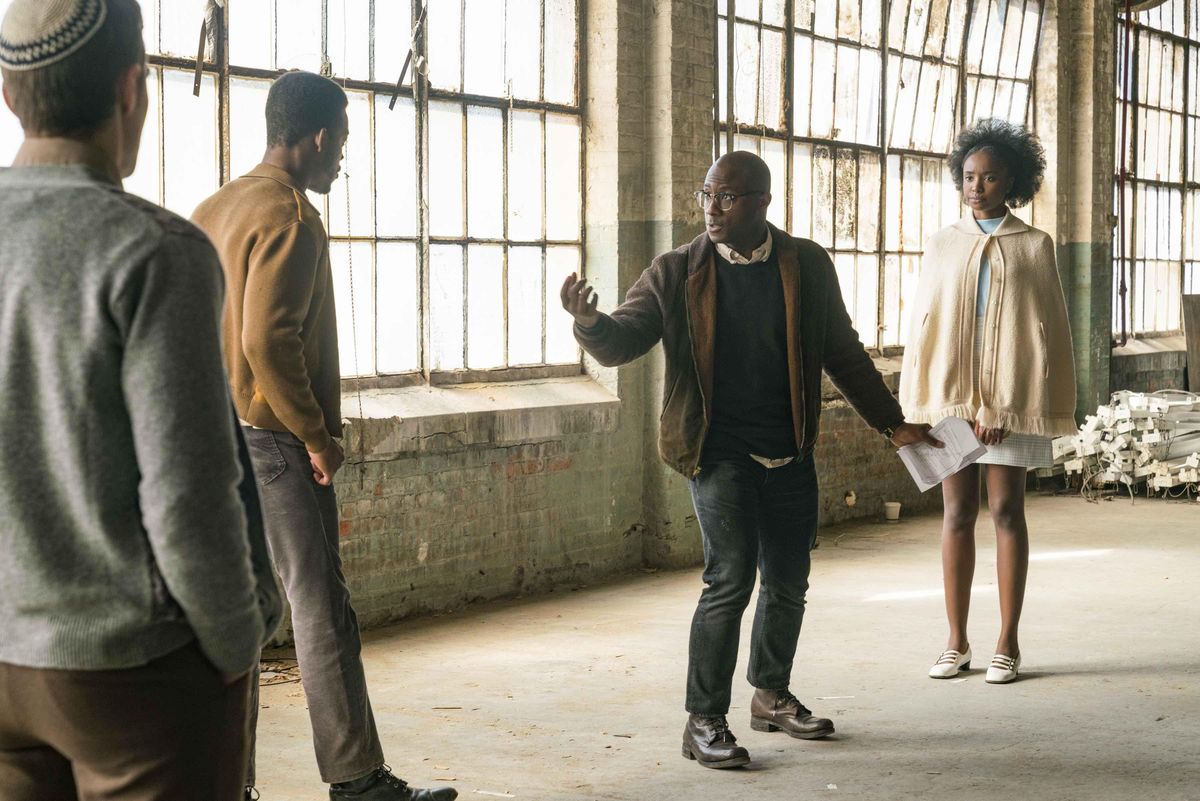The following article contains slight spoilers for "If Beale Street Could Talk."
I'm not one for uplifting the rare cis-het man that isn't as bad as the rest of his species. But when it comes to people in Hollywood who are great storytelling accomplices for queer people and our narratives, Barry Jenkins stands tall above the rest. The Oscar-winning writer-director demonstrated his allyship with Moonlight and he's done it once more with the film adaptation of James Baldwin's If Beale Street Could Talk, now in theaters.
Moonlight was adapted from Tarell Alvin McCraney's playIn Moonlight Black Boys Look Blue and tells the story of a black boy named Chiron living in the poor Liberty City neighborhood of Miami coming into himself and his gay identity in a world that refuses to allow him to do either with ease. It's based on McCraney's own experiences.
The play, however, unlike the film, wasn't triptychly structured. Rather, it played out in a circular motion with life happening for the youngest, middle and oldest versions of the character all at once. (Imagine a kid waking up and brushing his teeth, followed by his adolescent self and adult self doing the same actions.) Jenkins took this foundation, which couldn't be filmed, and turned it into Moonlight, and though he is not gay, he was able to convey and maintain the most intimate parts of McCraney's story.
"It's profound how much [directors] don't pay attention to what's on the page," McCraney told OUT, "but Barry pays attention to what's there, to what the feelings are of how the words come together to make a thing happen. He does deep dives into the nuance of language and that, in truth, is where the queer imagination lies. Because everything is how one sees the black and the white, but also the purple and the green."
It's this attention to detail that allows Jenkins to capture the essence of an experience unlike his own and transpose it in a way still authentic to its source. Take for example one of the most endearing scenes in cinema when Juan (Mahershala Ali), who has become a surrogate father of sorts for Chiron, teaches him how to swim. McCraney says the way he actually "learned how to swim is slightly different than the way Barry shot that.
"And yet he got the full nuance of what it meant to be held by a man in water and baptized in that way," he said.
Such sensitivity and care for the source is also on display in If Beale Street Could Talk. About a Harlem woman named Tish (Kiki Layne) trying to prove her fiance (Stephan James as Fonny) is innocent of a crime while carrying their first child, it's the first English language film adaptation of any Baldwin work. And though it is a hetero love story, Baldwin's intersectional, queer imagination informed it.
Most of the movie's dialogue is pulled directly from the 1974 novel, so what we hear in the film is from the mind of Baldwin himself. Additionally, the movie maintains the unique interiority of Baldwin's work and is a faithful manifestation of the writer-activist's delicate descriptions and treatment of his characters.
Like Victoria Rogers, the Puerto Rican woman played by Emily Rios who accuses Fonny of sexual assault at the insistence of a racist cop. She's a character that Baldwin never paints as an antagonist, realizing that both she and Fonny are pawns in a system built not serve them. Jenkins treated this storyline similarly and "I don't think he goes outside of himself to find the sensitivity to both paint the portrait of the accuser and the accused," McCraney said.
Or Daniel Carty, Brian Tyree Henry's character who's in the film for less than 15 minutes as Fonny's childhood friend fresh out of prison. It's a character that easily could've been left on the chopping block, but Jenkins realized the important of giving him a full life on screen and the necessary intimacy he brings to the overall narrative.
"[Jenkins] is using his own sensitivity to root out what is most important to the collaborator and matching it," McCraney said.
Perhaps what's most instructive however for other creators interested in telling stories by, about and of communities to which they don't belong is how Jenkins allows the source, whether it's a person or a book or a spirit, to lead him.
"There's something to be said about being led by the community," said McCraney, "to be followers from behind and allow one's experiences or qualifications to inform that position of following."
Imagine what the future of queer storytelling would look like if we had more people not of our communities following us rather than trying to lead.
Related | Colman Domingo, Barry Jenkins, and the Radical Necessity of James Baldwin's If Beale Street Could Talk

























































































